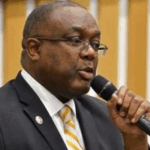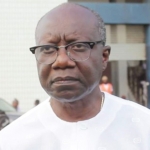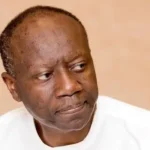
Advocates for Christ Ghana (A4CG) has raised concern over what it describes as growing religious tensions surrounding the management of Mission Schools across the country.
In a statement issued on Thursday, November 27, the group said recent public debates and official comments risk undermining the long-standing values that have guided Christian schools for decades.
Speaking through its Education Gate, A4CG said it was troubled by “policy pronouncements and administrative posturing” from state officials that appear to pressure Christian Mission Schools to alter their long-established principles in the name of human rights.
The group reaffirmed its support for the positions already taken by major Christian bodies, including the Christian Council of Ghana, the Ghana Catholic Bishops’ Conference, and the Anglican Church. According to the statement, these institutions “have historically steered the moral and educational foundations of our nation through the Mission Schools under their care, guided by values that promote discipline, excellence, and Godliness.”
A4CG criticised recent comments by the Minister of Education in Parliament regarding religious rights at Wesley Girls’ High School. It described the Minister’s remarks as “a distortion of the constitutional tenet of religious impartiality,” warning that such statements could breach the neutrality expected of a public office serving people of all faiths.
The statement emphasised that the Minister of Education, as the official overseeing a multi-faith education system, “must maintain neutrality in word and deed, avoiding any posture that suggests bias toward one faith tradition.”
A4CG said Ghana’s longstanding harmony between Christians and Muslims has been built on mutual respect and the freedom of each faith to operate schools that reflect their beliefs. It cautioned that portraying the internal policies of a Mission School as oppressive or discriminatory is dangerous, particularly because attendance at such schools is voluntary.
The group pointed out that Islamic Mission Schools also enforce rules grounded in their beliefs, while Christian Mission Schools have consistently produced strong academic results based on their own structures and traditions. It added that the 1992 Constitution protects both freedom of religion and the right to associate, including through faith-based institutions.
A4CG said it therefore rejects any attempt to “force Christian Mission Schools to dilute their identity,” and urged the Ministry of Education to clarify its commitment to neutrality and institutional autonomy. It called on the ministry to reaffirm “respect for the diverse religious traditions that make Ghana a unique model of coexistence.”
Read also: Supreme Court allows Democracy Hub to join Wesley Girls religious discrimination suit
The group further urged the ministry to consult widely with faith-based organisations before issuing public directives, to avoid interfering with the internal regulations of Mission Schools, and to honour the state’s commitment to return Mission Schools to their founding missions as promised in 2016.
It reminded the government that the ministry must act as “a neutral arbiter committed to safeguarding the rights, freedoms, and dignity of all learners, regardless of religious background.”




